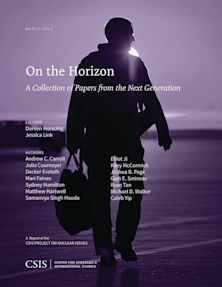Surveillance and the Vanishing Individual
Power and Privacy in the Digital Age
Surveillance and the Vanishing Individual
Power and Privacy in the Digital Age
This product is usually dispatched within 2-4 weeks
- Delivery and returns info
-
Flat rate of $10.00 for shipping anywhere in Australia
Description
Surveillance and the Vanishing Individual is an investigation into the impact of the spread of digital technologies and practices, and especially the wide-spread practice of mass surveillance, on privacy and personhood. The book argues that the quest for prediction, certainty, and control lying at the heart of the state’s security apparatus destroys an essential component of human dignity and fundamentally undermines liberalism.
The book begins with a discussion of the rise of the digital age and the historical import of this development. Subsequent chapters of the book examine different cultural understandings of privacy, the philosophical discussion of its centrality to human existence, and the form and extent of its legal protection. Lindau explores the reasons behind the rise of mass state surveillance, the modest legal restraints governing its use, and its deployment against activists, protestors, and dissidents and its impact on individuals and on privacy. The book then turns to a discussion of the rise of “surveillance capitalism” and, because this is not just—or even primarily—a U.S. phenomenon, examines the political, social, and other impacts of social media around the world. The book includes a case study discussing the global use of surveillance during the Covid-19 pandemic and the implications of this development before concluding with reflections on the relationship between mass surveillance and liberalism.
The book will appeal equally to readers across the social sciences and philosophy, and to students in courses on privacy, surveillance, and democracy. Lindau expertly explores the social, political, and economic consequences of digitization and one of its essential features – the appropriation and “mining” of ever large troves of personal information. The book primarily focuses on the experience of the United States but includes a comparative cross-national and cross-regional analysis and a discussion of the link between different regime types and state surveillance.
Table of Contents
Chapter 1: The Transition from the Industrial to the Digital Age
Additional Reasons for the Failure to Confront the Consequences of the Digital Age
New Configurations of Power in the Digital Age
The Emergence of New Digital Economic Identities
The Impact of the Internet on Political and Associational Activity
Conclusion
Chapter 2: Interdisciplinary Discussions of Privacy and its Loss
Socio-cultural Understandings of Privacy
Rationalization for the Loss of Privacy in the Digital Age
The “I Have Nothing to Hide Rationalization”
The “I Am Irrelevant” Rationalization
The Trump Rationalization
Public Defenders of Mass Surveillance
Conclusion
Chapter 3: Philosophical Debates About Privacy
Arguments About Privacy's Subsidiarity to Other Rights and Interests
Conclusion
Chapter 4: Privacy as a Legal and Constitutional Right
The Fourth Amendment and Privacy
The Legal and Constitutional Protection of Privacy in Other Countries
International Law and Privacy
Conclusion
Chapter 5: Nation
Product details
| Published | 07 Jan 2023 |
|---|---|
| Format | Hardback |
| Edition | 1st |
| Extent | 330 |
| ISBN | 9781538173503 |
| Imprint | Rowman & Littlefield |
| Dimensions | 237 x 157 mm |
| Publisher | Bloomsbury Publishing |
Reviews

ONLINE RESOURCES
Bloomsbury Collections
This book is available on Bloomsbury Collections where your library has access.



































